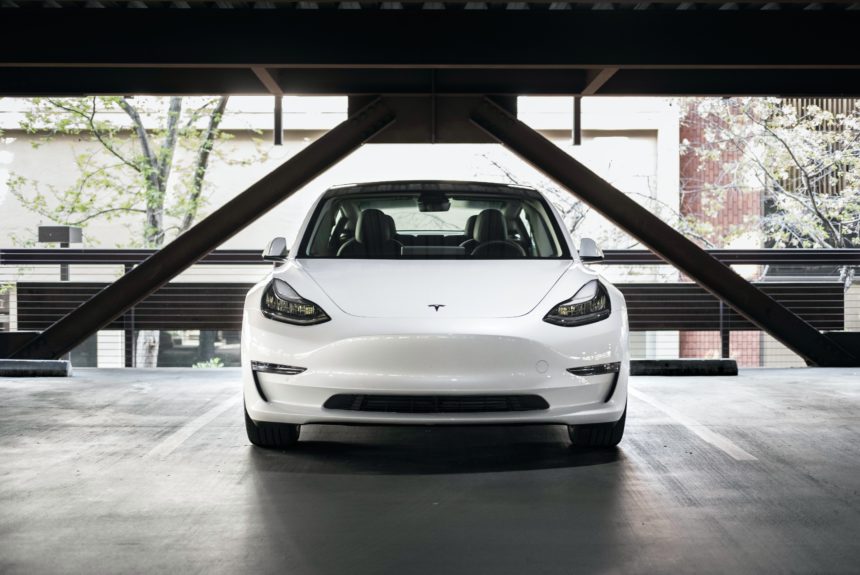As America looks to clean up its act and reduce greenhouse gas emissions, electric vehicles hold great promise. The transportation sector is the largest source of emissions in the U.S., and electric vehicles (EVs) can help improve local air quality and reduce the sector’s overall environmental impact. However, when trying to spur electric vehicle adoption, lawmakers often resort to subsidies and mandates. But the heavy hand of the government isn’t the only game in town and can be counterproductive by funneling resources to politically preferred technologies. Alternatively, removing unnecessary barriers at all levels of government can spur EV growth by making it easier for Americans to buy, charge, maintain, and benefit from EVs.
These reforms cover the whole range of the EV market. To begin, policymakers should make it easier for more Americans to buy EVs. Many EV companies use a “direct sales” model to sell their cars to customers without going through a dealership. However, it is illegal in nearly two dozen states for residents to buy EVs directly from manufacturers. More EV companies are entering the market using the direct sales model, and ensuring that customers can buy directly from them is an easy way to allow the EV market to grow.
>>>READ: Spiers New Technologies is Solving One of America’s EV Woes
Free market reforms can also make it easier for drivers to charge their EVs. Charging an EV is different from fueling a traditional car. Instead of fueling up at a centralized location, EV drivers must incorporate charging into their everyday lives. This means chargers will be dotting local landscapes and therefore be subject to local permitting and zoning regulations. Dozens of cities and counties have revised their codes to allow chargers to be built in all zoning districts, and many have also sped up the permitting process to grant necessary approval within a day. The patchwork nature of neighboring municipal codes often creates confusion and construction delays. Making this process more uniform and not unduly discriminating against property owners installing EV chargers is an easy way to encourage EV charger growth.
Furthermore, removing barriers to maintenance work can help drivers keep their cars on the road longer. Many EV companies block EV owners and independent car shops from performing work on their cars, requiring drivers to get pricey maintenance work done by the manufacturers themselves. In addition to driving up costs, manufacturers essentially create a monopoly in the secondary market for parts and repair. Lawmakers could grant EV owners the “right to repair” their own vehicles and help create a market for cost-effective maintenance work. Many states have recently taken this approach with regard to farm equipment, and it’s standard practice now to be able to take a gasoline-powered car to a repair shop of your choosing. EV owners deserve the same freedom.
Similarly, removing barriers and expanding the market for the materials needed to make EV batteries can help lower vehicle costs and make EVs more affordable. EV batteries depend heavily on minerals like nickel and lithium. America has some deposits of these minerals, but overly burdensome mining restrictions mean most of it is imported. Mining these minerals can be a dirty process if done poorly, but several environmentally-conscious countries already mine and process them regularly. If we want to reduce emissions and pollution as much as possible, full and transparent accounting of EV’s lifecycle emissions can help identify which points along the process must be cleaned up the most.
Lastly, one of the most exciting benefits of EVs is how they can assist the electric grid. When the car is connected to a charger, the electricity stored in EV batteries can help balance local electricity needs on nearby parts of the grid. This can help relieve stress on power plants during times of high electric demand. EV owners can be market participants in daily energy markets, and policymakers and regulators can design programs that allow EV owners to be compensated for the value they bring to the grid. Of course, not every EV driver will want to use their EV in this way every day. But with a projected 22 million EVs on the road by the end of the decade, enough EV owners will use it some of the time to create a dependable source of grid-balancing electricity.
From buying an EV to connecting it to the grid, these reforms can open up the market to allow drivers to take advantage of all the benefits EVs offer, without unfairly favoring EVs over other types of emerging clean transportation methods, including cleaner, more efficient internal combustion engines. The EV market is on the verge of rapid growth, and free market reforms can help encourage EV adoption without subsidies or mandates. That growth should be driven organically by customer demand rather than unsustainable policies.
Jakob Puckett is an energy policy analyst and Young Voices contributor. Follow him on Twitter @jakobrpuckett.
The views and opinions expressed are those of the author’s and do not necessarily reflect the official policy or position of C3.
